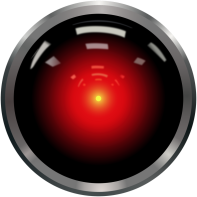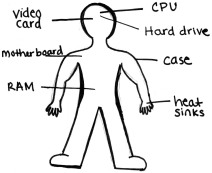The next E-Intentionality seminar will be held Monday, June 20th from 13:00 to 14:50 in Fulton 102. Ron Chrisley will speak on “Machine consciousness: Moving beyond “Is it possible?”” as a dry run of his talk at the “Mind, Selves & Technology” workshop later that week in Lisbon:
as a dry run of his talk at the “Mind, Selves & Technology” workshop later that week in Lisbon:
Philosophical contributions to the field of machine consciousness have been preoccupied with questions such as: Could a machine be conscious? Could a computer be conscious solely by virtue of running the right program? How would we know if we achieved machine consciousness? etc. I propose that this preoccupation constitutes a dereliction of philosophical duty. Philosophers do better at helping solve conceptual problems in machine consciousness (and do better at exploiting insights from machine consciousness to help solve conceptual problems in consciousness studies in general) once they replace those general questions, as fascinating as they are, with ones that a) reflect a broader understanding of what machine consciousness is or could be; and b) are better grounded in empirical machine consciousness research.

